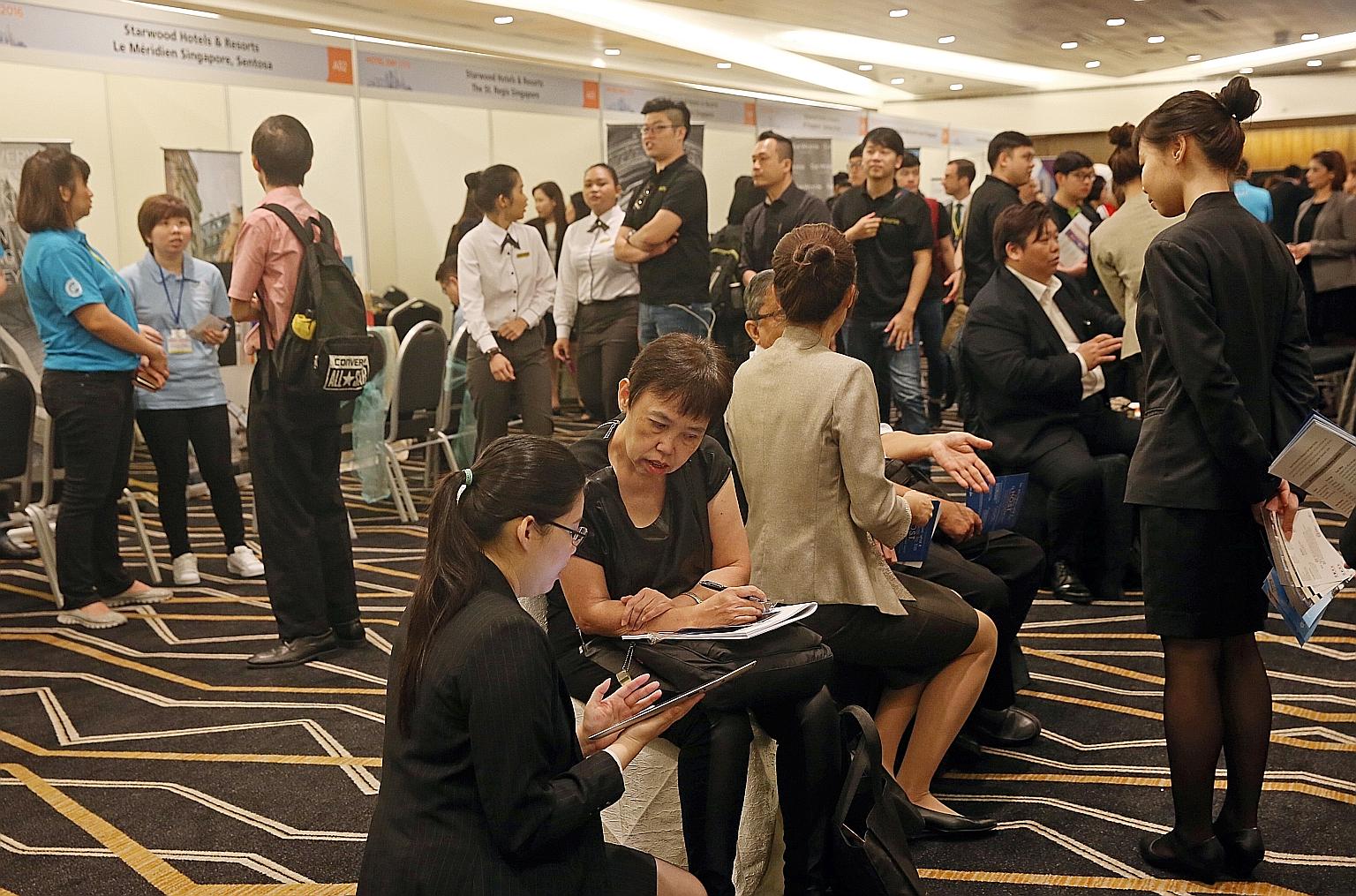Two new career schemes for hotel sector
One helps mid-career executives switch industries, while the other identifies skills needed to advance
Sign up now: Get ST's newsletters delivered to your inbox

Job seekers at the hotel career fair yesterday. The hotel sector, which employs 35,000 people, has about 2,100 vacancies, of which 40 per cent are for PMETs.
ST PHOTO: SEAH KWANG PENG
Follow topic:
Linen-folding robots and a machine that makes cocktails at the touch of a button - using such technology to cut staffing needs in the labour-strapped hotel sector is all very well, said Manpower Minister Lim Swee Say yesterday.
But the human touch remains paramount, he added at a hotel career fair showcasing such technology.
To help improve the careers of workers in the sector, he launched two new programmes.
They are the Professional Conversion Programme (PCP), which helps mid-career executives switch between industries, and the Skills Framework for Hotel and Accommodation Services, which helps workers identify the skills they need to climb the job ladder.
Both initiatives are administered by the Singapore Workforce Development Agency.
"Our hotels in the future will not only offer new and better services to hotel guests, but also new and better jobs and careers to hotel staff," said Mr Lim. "Industry transformation can be disruptive, yet rewarding for those who are willing and able to adapt."
Technology can help hotels become "manpower-lean but not manpower-less", he added, as human resource will still be needed for creative and higher-value work.
The two new programmes come in the wake of sombre labour market figures released on Sept 15, which show layoffs rising especially in the service sector.
The PCP will be rolled out for the hotel industry next month.
Under this programme, mid-career professionals, managers, executives and technicians (PMETs) who want to join the hotel industry will be placed in hotels as sales executives or assistant sales managers, for instance, and will get on-the-job training.
The 18 participating hotels - including Amara, Shangri-La and Mandarin Oriental - will receive training subsidies and up to 70 per cent wage support.
Previous PCPs were aimed at helping people switch jobs within the same sector. This is the first that prepares PMETs for work in other industries.
The Skills Framework for Hotel and Accommodation Services, the first to be launched under the nationwide SkillsFuture initiative, is a structured guide to help workers chart their career progression.
For example, an assistant digital marketing executive who wants to become a manager will know from the framework that he needs to pick up certain skills, such as running a social media campaign, to be promoted.
The framework for the hotel sector is the first of about 30 that will be rolled out for different sectors over the next few years.
The hotel sector, which employs 35,000 people, has about 2,100 vacancies, of which 40 per cent are for PMETs.
Among those who hope to benefit from the new skills framework is Grand Park City Hall hotel executive trainee Peh Kok Hwa, 25, whose dream is to become a hotel restaurant manager.
When he first made the switch from electronics to housekeeping and manning the front desk, he was initially lost as to what skills he needed to advance.
"It would be good to find out more about what training I can take as this industry is still new to me," he said. "I want to go far in this industry because I like to serve people. I want them to be able to bring back joy to their homes and their countries."

